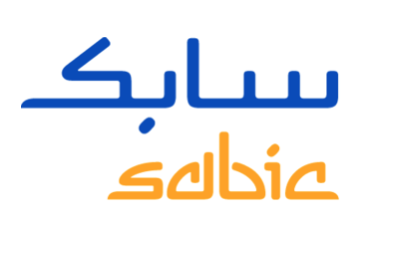
SABIC highlights innovation with details of world’s largest CO2 purification plant in Sustainability Report
The SABIC Sustainability Report 2015, entitled Enabling Tomorrow’s Solutions, released today, features the company’s sustainability achievements throughout the world and highlights how SABIC is setting the standards for innovation and sustainable development in the chemical industry.
The Sustainability Report 2015 can be downloaded at www.sabic.com/sustainability.
“SABIC has always been about much more than bringing economic value to Saudi Arabia and the countries where we operate; we have brought a wide range of benefits to society and the environment throughout our global network,” said Yousef Al-Benyan, acting Vice-Chairman and CEO of SABIC. “Since sustainability became a foundation of our 2025 strategy – the roadmap to our emergence as the preferred world leader in chemicals – we have come a long way. The Sustainability Report is a snapshot of this invaluable contribution; we hope it inspires others strive for innovative solutions that benefit our communities.”
The report covers high priority topics such as resource and energy efficiency; innovation and sustainability solutions; EHSS and product safety; supply chain; human capital; and social impacts and community relationships.
CO2 purification plant at Jubail, a SABIC manufacturing affiliate
The report prominently features a CO2 purification plant that opened last year at United, a SABIC affiliate in Saudi Arabia, boosting the company’s overall operational efficiency. The new facility can capture and purify up to 500,000 Metric Tons of CO2 from the production of ethylene glycol every year.
“This impressive project has become a standard bearer for sustainable, efficient and environmentally conscious development,” Awadh Al-Maker, Executive Vice President for Technology and Innovation at SABIC. “The project shows how technology can reduce emissions, convert waste CO2 into valuable products, and increase operational efficiency, providing SABIC with both short- and long-term gains.”
The purified CO2 is channelled through a network to other SABIC affiliates, where it is used in the production of useful products, such as urea for agricultural nutrients, liquefied CO2 for the food and drink industry, and methanol, a building block for many other chemicals that we use daily. The network enables SABIC to maximize resource efficiency by enabling integration between multiple sites.
Resource and energy efficiency
SABIC continued progress to meet ambitious goals in resource and energy efficiency throughout its global operations: reducing energy consumption, greenhouse gas (GHG), and water intensities by 25 percent, and material loss intensity by 50 percent from levels in 2010 by 2025.
SABIC’s global utilization of CO2 as a feedstock increased to 3.3 million Metric Tons, helping to reduce material loss intensity by 29 percent since 2010. Over the same period, GHG emissions intensity has decreased by 7.8 percent, energy intensity by 8.1 percent, water intensity by 11 percent.
Innovation and sustainability solutions
With our commitment to ingenuity and collaborative approach to technology and innovation, SABIC created a demonstration house for its Home of InnovationTM initiative that is designed to achieve a net-zero energy balance in the demanding conditions of the Saudi Arabian desert. SABIC also qualified 23 new sustainability products: solutions that enhance economic, social, and environmental benefits throughout the lifecycle. With innovation hubs in five key regions – the USA, Western Europe, Saudi Arabia, Southeast Asia, and Northeast Asia – the company’s total patent portfolio filings grew to a new high of 10,960 in 2015.
EHSS and Product Safety
In Environment, Health, Safety, and Security, SABIC continued strong improvement globally. This progress is marked by a reduction in the EHSS incident rate by 30 percent to reach 0.48, which is a strong step toward our 2025 goal of 0.25 incidents for every 200,000 hours worked. Hazardous substance chemical release incidents also fell by 36 percent and the volume of accidental releases by more than 92 percent. Process safety performance metrics continue to improve, and there were no major process safety incidents, occupational illnesses or fatalities. Development of a product safety metric progressed this year, and more than 11,000 product safety inquiries were received, which indicated an increasingly complex regulatory environment.
Supply Chain
Supply chain was another area of forward progress with the launch of a comprehensive supply chain and procurement framework that continues to push SABIC toward a leadership position in sustainability; the implementation of two new key performance indicators plus standardized, global EHSS incident reporting; and the completion of educational programs to optimize performance. Significant developments occurred in modernization of the road and ocean fleet, and other enhancements to the company’s intermodal transportation network.
Human Capital
To continue the development of human capital, SABIC focused on talent acquisition, and growing and retaining a workforce with the skills and leadership qualities needed to meet the demands of the industry. Throughout the year, 30,835 employees – from entry- to executive-level – participated in training programs. Other highlights included the successful completion of executive MBAs by 53 leaders.
Social Impacts and Community Relationships
In 2015, SABIC gave US$53.9 million to community projects to increase education in science and technology, protect the environment, promote health and wellness, and support water and agriculture projects. In addition to direct contributions, SABIC’s employees dedicated themselves to community projects in many countries that feature in the report.

























